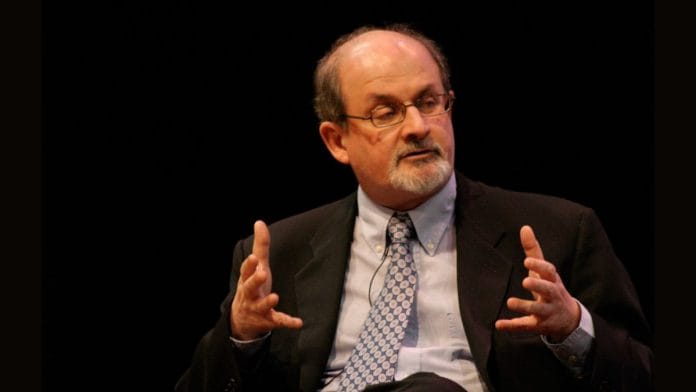Salman Rushdie’s book, The Satanic Verses, has long being considered blasphemous for its portrayal of the fictionalised version of Prophet Mohammed and interpretation of Quran. However, being hunted down like a quarry 34 years after the publication of a book only underscores the institutionalisation of hatred and the outright rejection of the concept of freedom of expression.
Rushdie was stabbed in the neck and torso while giving a lecture in New York on 12 August this year. The attack was a result of judgement blinded by intolerance. We all are aware of the brutal attack that Rushdie suffered a month ago. And we also remember the cold indifference with which most of our politicians have responded to it. The response to the attack on Rushdie gives the impression that Indian officials nearly justify or condone the attacker as if Rushdie deserved to be punished for blasphemy. No doubt, a few of them have spoken about it, but the only party leader to do so is Sitaram Yechury. The rest have nothing to say. Is it really the case that none of the politicians felt anything after learning about the attack? Or do they have the fear of offending Muslim voters or the Iranian government.
Despite the fact that his citizenship may have changed, he is still an Indian. He was born here. In an interview, he remarked that “There is a sense in which the nation in which we are born and raised holds a special place in our life”. Anyone who has read his writings is aware of how much India influences his stories and his imagination calls for it.
In a response to the question at a press conference in Bangalore, the external affairs minister DR S Jaishankar said “I have also read about the attack. I also saw that and I think obviously that is something which the whole world has noted. Any attack like this, obviously, the entire world has reacted.” The whole world did, but not our external affairs minister. His was not a reaction to the act, not a condemnation either, but just an acknowledgement that he was aware of it.
India’s muted response has not gone unnoticed. According to the Guardian newspaper, India was the first country to impose a ban on The Satanic Verses in 1988. Neither the Indian government nor the main opposition Congress party have released a statement. The Congress party was in power when the book came out and swiftly decided to ban/outlaw it.
What is even more concerning is the silence of Indian authors who reside in India. No significant Indian author currently residing in India, apart from Shashi Tharoor, has publicly denounced the attack. There hasn’t been a group initiative (like the one started by PEN America) yet. This sends a wrong message to the rest of the world. They appear to advocate a lot on incidents like mob lynching, then why not this? Are they silent because they fear that speaking out against Islamic fundamentalism will jeopardise the safety of the nation’s minority communities? Are they being silent because Prophet Mohammad is involved in the incident and they are concerned about their safety? This silence, certainly, is not in line with the kind of values that we would want to instill as a society.
Also read: ‘Not a good person, disingenuous,’ says Salman Rushdie’s attacker, ‘surprised’ author is alive
Meanwhile, the rest of the world has embraced him and made him his own. France’s president Emmanuel Macron said “His fight is our fight. Now more than ever, we stand by his side”. Britain condemned such a reaction as “ludicrous” and the USA as “outrageous”.
Whose side are we on? Now is the time to be explicit, obvious and make it evident. When someone we proudly call our own is attacked, why is it that we have nothing to say? What does this suggest of our attitude? It affects our stature as the world’s largest democracy.
As Rushdie wages his battle against his wounds, we need honesty and courage for that honesty. It is the need of the hour for writers, artists, and readers to protest against this heinous conduct and its potentially dangerous implications. If intolerance is not checked and stopped from becoming violent, it is the innocents who will suffer and end up paying the price that they do not deserve to. Whatever the reason, Indian writers should strongly speak out and categorically condemn the attack.
In a BBC interview, Rushdie was asked if he felt rejected by India when he wasn’t given the VISA. He replied in affirmative saying that he did feel the exile from India to be one of the most painful things of those years.
Now, perhaps our silence has added to his hurt and made him feel worse. We have turned our backs on him, haven’t we?
The author is a student at Delhi Public School, RK Puram. Views are personal






